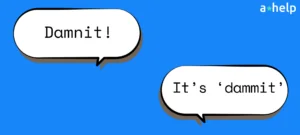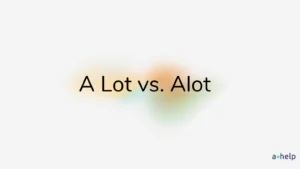Have you ever paused before typing “because” at the start of a sentence, wondering if it’s grammatically correct? Many of us have been told somewhere along the line that it’s a no-go in proper English. But the truth is, the rules of written and spoken English aren’t always black and white.

✅ AI Essay Writer ✅ AI Detector ✅ Plagchecker ✅ Paraphraser
✅ Summarizer ✅ Citation Generator
Today, we will be looking into the widely held belief that starting a sentence with “because” is incorrect. This idea often stems from early school days but doesn’t hold up that much. In fact, you can absolutely begin a sentence with “because,” as long as the sentence has a complete independent clause to stand on its own. That means the sentence must be able to convey a full thought and not leave anyone hanging, waiting for the rest of the explanation.
So, let’s break down this myth and learn how to use “because” confidently right at the beginning of your sentences, whether you’re speaking or writing.
What Is “Because” And Where You Can Use It
“Because” is a word in English that serves a specific purpose: it’s a conjunction used to introduce cause-and-effect relationships within sentences. For example, you might say, “I stayed home because it was raining,” or “She was late because the traffic was terrible.” In both cases, “because” sets up a direct link between one circumstance and its direct outcome, clarifying why something happened.
Conjunctions like “because” play an important role in sentence structure. They help to connect clauses in a way that adds logic and depth to our explanations. Generally, conjunctions can link similar parts of speech, such as two nouns or two independent clauses.
Examples and Explanation for Using Because at the Start of a Sentence
Starting a sentence with “because” can be tricky, but when done right, it’s perfectly grammatical. Let’s look at some examples to understand when it works and when it doesn’t during a grammar check.

In this sentence, “because” introduces a complete thought that explains why I went to bed early. The phrase “I was tired” is a full clause (it has a subject and a verb), and “I went to bed early” can stand on its own as a sentence. This makes the entire sentence balanced and grammatically correct.
Incorrect Usage
“Because I was hungry.” This attempt stops short. It sounds like it’s leading into a fuller statement but ends up hanging. The main issue here is that “Because I was hungry” is not a complete sentence; it’s a dependent clause that needs an independent clause to complete the thought, like “I ate a sandwich.”

Here, “because” leads into a reason that directly connects to the action that follows. Both parts of the sentence are complete clauses, making this a correct and effective use of “because” at the start.
Incorrect Usage
“Because of the rain.” Similar to the previous example, this one leaves you expecting more. Without a following independent clause, like “the game was canceled,” it feels unfinished and leaves the listener or reader hanging.
Tips on Using Because Correctly
Firstly, to check if a sentence starting with “because” is grammatically correct, look for a complete idea following it. The clause after “because” should be able to stand alone as a sentence if you remove the “because.” For example, “Because I was late, I missed the bus.” If you drop “because,” “I was late” and “I missed the bus” both stand as full sentences. This is your clue that you’re using “because” properly.
Sometimes, you might find yourself stuck with a sentence like, “Because I was hungry.” It feels incomplete, right? That’s because it is. It’s only giving us a reason without telling us the outcome. A quick fix? Extend it to include a result: “Because I was hungry, I ate an entire pizza.” Now it’s a complete thought!
Another tip is to flip the structure if you’re unsure. Start with the outcome and then explain the reason. “I ate an entire pizza because I was hungry.” This switch can often make it easier to spot whether your ‘because’ clause is dependent or independent.
Remember, ‘because’ introduces the reason for an action. When this reason is followed by a clear action, it makes your sentence complete and your writing crisp. Keep practicing, and soon using ‘because’ will be a breeze!
FAQ
Follow us on Reddit for more insights and updates.





Comments (0)
Welcome to A*Help comments!
We’re all about debate and discussion at A*Help.
We value the diverse opinions of users, so you may find points of view that you don’t agree with. And that’s cool. However, there are certain things we’re not OK with: attempts to manipulate our data in any way, for example, or the posting of discriminative, offensive, hateful, or disparaging material.